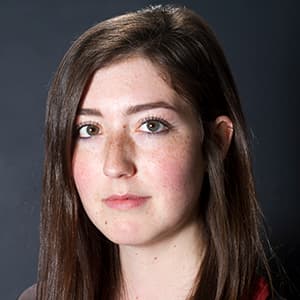STARTUP OF THE WEEK: york space systems

In this series, we visit Denver-metro, Boulder and Rocky Mountain region startups. Fill out the form at the bottom of the page to be considered or nominate other startups for a chance to win a free week at Galvanize.
York Space Systems CEO and co-founder Dirk Wallinger imagines a world where there are rocket launches every week.
In this world, the tremendous costs associated with spacecraft customization and engineering no longer make access to spaceflight near impossible. In 2015, Wallinger co-founded Denver-based York Space Systems to bring more spacecraft buses to more companies, more often -- and at a fraction of the usual price.
And they've already scored a major contract.
Affordability and access, Wallinger said, are the keys to increasing the frequency of commercial aerospace launches. He believes York's standardized spacecraft platform, the S-Class, delivers just that.
The S-Class is manufactured in advance for clients and ranges in cost from $675,000 to $1 million, depending on how many extra features are desired.
It performs all the basic functions of a spacecraft but is data- and instrument-agnostic, meaning it interfaces with instruments provided by clients and relies on them to analyze and distribute the collected data.
Wallinger believes the ready availability will prove advantageous to these companies looking to quickly collect new and different data sets. And while $1 million may sound like a lot, in the aerospace industry it is about 10 times less than the spacecraft produced by competitors and industry staples.
Most spacecraft production costs are bundled in with payload (think satellites). What's more, most private companies don't publicly disclose their costs, so it can be difficult to determine the average cost of a spacecraft bus. But Wallinger estimated York's closest competitor produces buses for about $15 million.
The reason those spacecraft buses cost so much is because they are custom-designed for each mission. Hardware comprises about 30 percent of total bus cost, whereas nonrecurring engineering fees, those needed for spacecraft bus customization, make up about 70 percent of the total cost.
York Space Systems wants to virtually eliminate those nonrecurring engineering costs.
"We don't redesign the spacecraft every single time. We pick pieces of it that we want to make better for our customers," Wallinger said. "Every single product that you buy in your life is like this. Space is the only one that decides to redesign it from scratch every single time."
Wallinger calls this an evolutionary approach and likens it to the iPhone or the Model T, where hardware is designed for multiple clients, ahead of need, and is upgraded incrementally over time.
And since York Space Systems does not redesign from scratch every time, the company can continue to spend on high quality hardware, while greatly cutting back on engineering. What engineering costs they do incur will be spread among their clients, rather than allocated to just one.
The idea for York Space Systems was born from the frustration of industry veterans. York's staff and advisory board come from the likes of CNES, NASA, Lockheed Martin and Orbital Sciences, and many are former or current engineers.
"It started with the technical insight into a fundamentally different way to build a spacecraft. There was a good amount of time spent vetting, and the tipping point was when we realized there was a viable business model for it," Wallinger said.
Through access and affordability, York Space Systems envisions they will help the commercial aerospace sector take off, while supplementing with government contracts.
"I don't thing we are going to replace Lockheed and Boeing. The government is always going to want a bespoke, quality product," Wallinger said. "We are not fighting over the existing pie. We think there is an entirely different pie, a bigger pie."
Since its January 2015 launch, York Space Systems has engaged 33 clients, either through formal agreement or letters of intent. Some are commercial and some are governmental.
Their first launch, anticipated for the end of 2017, is through a contract with the U.S. Army to deploy the Harbinger Mission. The mission's suite includes technology that will expand Synthetic Aperture Radar (SAR) data to support multiple worldwide industries. Data can also be used for climate and environmental monitoring or search and rescue missions.
Wallinger is excited to see what York Space Systems can learn from working on a government contract before branching into the commercial sector.
As for the future, York Space Systems supports the ideals of Rocket Lab and Vector, two launch companies with ambitions to remove barriers from commercial spaceflight and launch as often as possible. York Space Systems aspires to putting 50 spacecraft buses into space within the next three years.
Founders: Dirk Wallinger, James Wells Person
Employees: 9
Industry: Commercial aerospace
Founded: Jan. 15, 2015
Launched: Dec. 20, 2016 (Pana Free)
Funding: Undisclosed Angel investment
Office: Shared workspace in downtown Denver, soon to be leasing locally
Multimedia business & healthcare reporter Chloe Aiello can be reached via email at [email protected] or twitter.com/chlobo_ilo.
Subscribe to Denverite’s newsletter here












